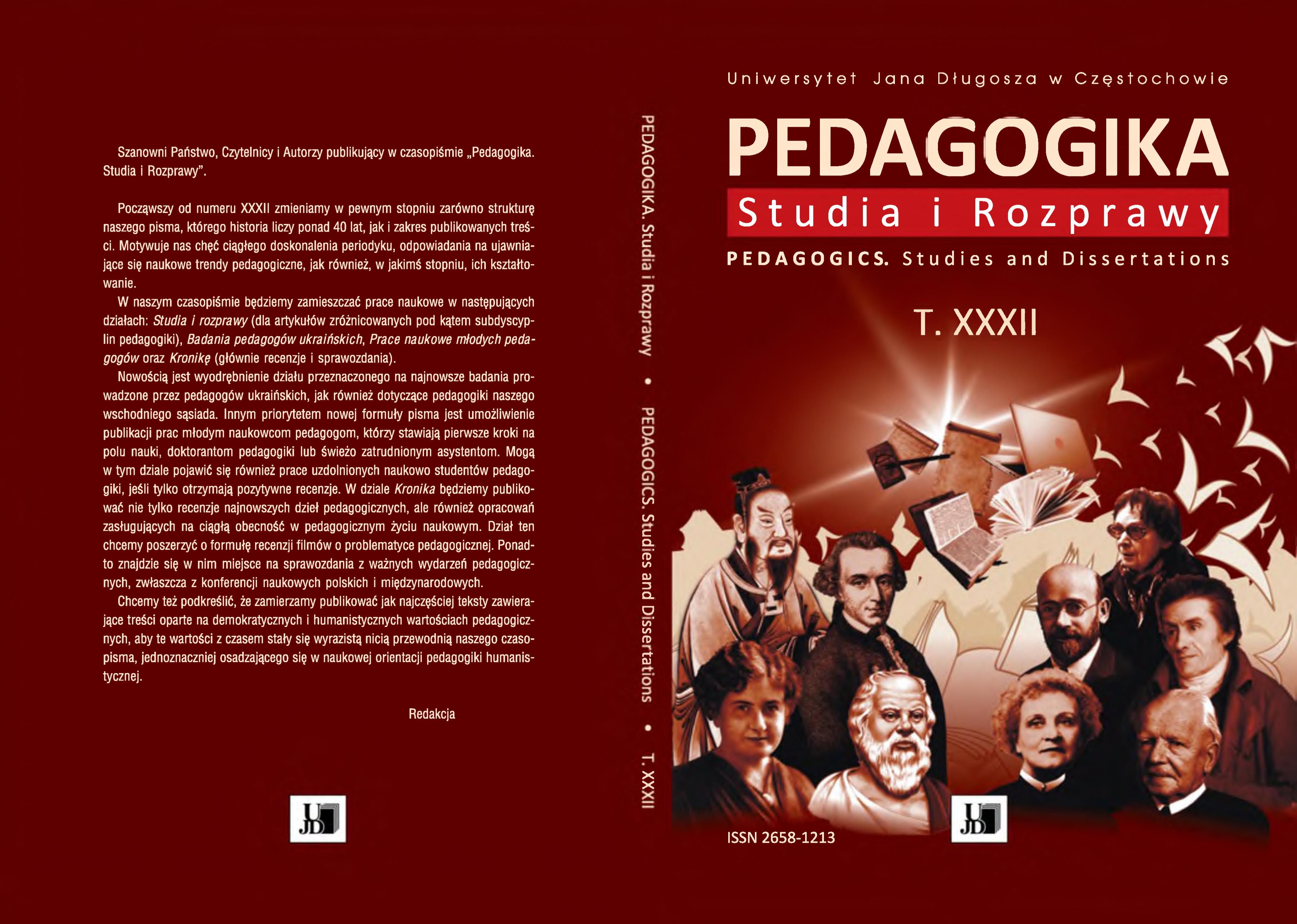THIRD AGE UNIVERSITIES AS HUBS FOR CULTIVATING DIGITAL PROFICIENCIES IN OLDER ADULTS
DOI:
https://doi.org/10.16926/p.2023.32.10%20%20Keywords:
social works, older adults, digital proficiencies, andragogy, Third Age UniversityAbstract
In this article, we present the outcomes of implementing an experimental program designed to nurture digital proficiencies among older adults within the framework of a Third Age University affiliated with a territorial social service center.
Through a process of analytical scrutiny, we have refined, systematized, and extended the definitions and structure of digital proficiencies in the older demographic. Anchored in this conceptualization and the tenets of andragogy, we have formulated a program that prioritizes the enhancement of digital skills, encompassing computer utilization, internet navigation, engagement with social media, and the mastery of other digital tools. Furthermore, the research delves into the collaboration between social workers who specialize in geragogy and program participants, as well as the utilization of the Moodle platform.
The analysis of survey results (n=360 respondents) substantiates the program's triumph and the favorable attitude of older adults toward digital technologies. It underscores how the program takes into account the nuances of geronto-educational technologies while fostering the digital proficiencies of older individuals, enabling them to seamlessly integrate digital tools into their everyday lives.
References
Blažič, B.J. & Blažič, A.J. (2020. Overcoming the digital divide with a modern approach to learning digital skills for the elderly adults. Educ Inf Technol, 25, 259–279. https://doi.org/10.1007/s10639-019-09961-9
Chahrak, N. I. (2017). Universytet tretʹoho viku: sotsiokulʹturne y osvitnye seredovyshche dlya lyudey pokhyloho viku. Visnyk Lʹvivsʹkoho Universytetu. Seriya pedahohichna, 32, 208–216.
Davydenko, G. (2023). Tsyfrova inklyuziya ta dostupnistʹ: sotsialʹna didzhytalizatsiya . Vinnytsia : TVORI. https://doi.org/10.58521/978-617-552-348-3-2023-236
Doronina, O. V. (2021). Osvita lyudey pokhyloho viku v Ukrayini: Universytet tretʹoho viku. Formation of innovative potential of world science (с. 52–53). Tel Aviv: European Scientific Platform.
Formosa, M. (2012). Four decades of Universities of the Third Age: past, present, future. Ageing & Society, 34(1), 42-46. https://doi.org/10.1017/S0144686X12000797
He, T., Huang, C., Li, M., Zhou, Y., & Li, S. (2020). Social participation of the elderly in China: The roles of conventional media, digital access and social media engagement. Telematics and Informatics, 48, 101347. http://dx.doi.org/10.1016/j.tele.2020.101347
Karkach, A., Kravchenko, O. & Semigina, T. (2022). Suchasni pidkhody do rozuminnya litnikh lyudey yak osoblyvoyi sotsialʹnoyi hrupy. Sotsialʹna robota ta sotsialʹna osvita, 2(9), 77–90. https://doi.org/10.31499/2618-0715.2(9).2022.267086
Kolyada, N. M., ed. (2016). Sotsialʹna herontolohiya. Umanʹ: FOP Zhovtyy O.O.
Kravchenko, O. & Kucher, H. (2023). Universytet tretoho viku «Dyvosvit»: z dosvidu umanskoi terytorialnoi hromady. Vvichlyvist. Humanitas, 1, 43–48. https://doi.org/10.32782/humanitas/2023.1.6
Kukhta, M.P. (2018). Sotsialʹnyy potentsial lyudey starshoho viku v Ukrayini. Kyiv: KNUKiM.
López Seguí, F. et al. (2019). An Intergenerational Information and Communications Technology Learning Project to Improve Digital Skills: User Satisfaction Evaluation. JMIR Aging, 2(2). https://aging.jmir.org/2019/2/e13939
Lukyanova, L. (2021). Kontseptsiya diyalʹnosti Universytetiv tretʹoho viku. Kyiv : Vyd-vo TOV «Yurka Lyubchenka».
Ryzhanova, A. (2022). Sotsialʹno-pedahohichnyy suprovid sotsializatsiyi lyudey pokhyloho viku v informatsiynomu suspilʹstvi zasobamy sotsiokulʹturnoyi diyalʹnosti. Věda a perspektivy, 9(16), 158-171. https://doi.org/10.52058/2695-1592-2022-9(16)-%20158-171
Schlomann, A., Even, C. & Hammann, T. (2022). How Older Adults Learn ICT–Guided and Self-Regulated Learning in Individuals With and Without Disabilities. Front. Comput. Sci. 3, 803740. http://dx.doi.org/10.3389/fcomp.2021.803740
Selwyn, N. (2004). Reconsidering political and popular understandings of the digital divide. New Media & Society, 6(3), 341–362. http://dx.doi.org/10.1177/1461444804042519
Semigina, T.(2021). Doslidnyky yak ahenty zmin (vykorystannya doslidzhennya v diyi u sotsialʹniy roboti). Visnyk Kyyivsʹkoho natsionalʹnoho universytetu imeni Tarasa Shevchenka. Seriya «Sotsialʹna robota», 1(7), 37-41. https://doi.org/10.17721/2616-7786.2021/7-1/7
Semigina, T., & Karkach, A. (2019). "E-inkliuziia" litnikh liudei i sotsialna robota. Aktualni problemy sotsialnoi pedahohiky ta sotsialnoi roboty: materialy Vseukr. nauk.-prakt. konf. (pp. 130-133). Uman: VIZAVI.
Semigina, T.V. & Fedyuk, V.V. (2022). Tsyfrova kompetentnistʹ yak instrument rehulyuvannya rynku pratsi. Economy and society, 40. https://doi.org/10.32782/2524-0072/2022-40-41
Sieck, C. J. et al. (2021). Digital inclusion as a social determinant of health. NPJ Digital Medicine, 4 (1), 52. https://doi.org/10.1038/s41746-021-00413-8
Zhytynska, M. O. (2016). Sotsialʹno-pedahohichne seredovyshche universytetu tretʹoho viku yak chynnyk formuvannya zhyttyediyalʹnosti lyudey pokhyloho viku. Sotsialʹna robota v Ukrayini:teoriya i praktyka, 1-2, 131–140.


